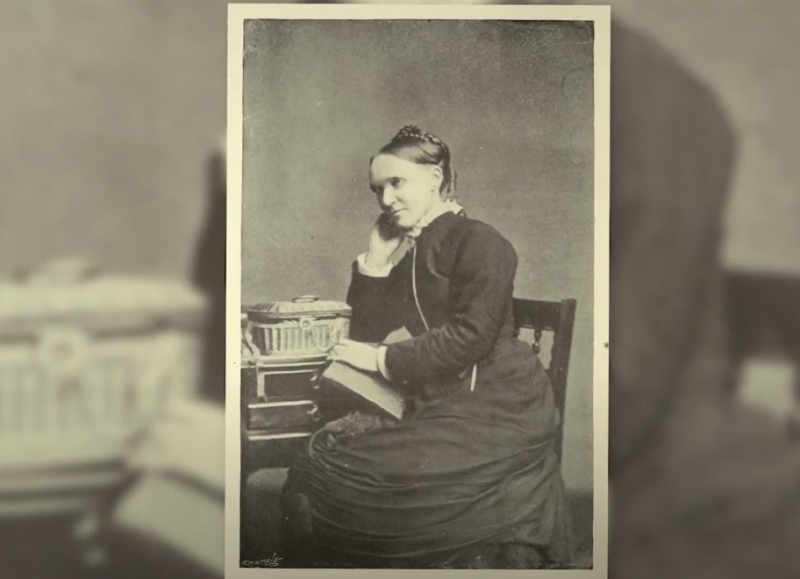Thanksgiving: What, Exactly, Are ‘Blessings’?
Sign up for a six month free
trial of The Stand Magazine!
Thanksgiving is usually a time for expressing gratefulness to God for His many blessings – and who doesn’t want to be blessed? I know I do.
At its most basic level, blessed means “happy.” But that’s not difficult to define, is it? There are only as many definitions of happiness as there are people.
The tricky thing about the Bible, however, is that concepts like “blessing” are not always what we expect – or necessarily want. I don’t think I’m going out on a limb here to declare what many American Christians want “blessing” to mean: money and health. If you have those two building blocks, happiness is bound to come, right?
I’m not criticizing the desire for money and health. I’m not even suggesting it is peculiarly an American desire because I think it’s absolutely human. Take money, for example. There’s an old joke about it that says: “Money can’t buy happiness, but it buys the kind of misery I can live with.”
The fact is, we need money because it is an instrument that helps us purchase the basics of life. Money also gives us access to some really great indulgences – gadgets, entertainment, excellent restaurants, luxurious vacations, etc.
Many Christians view the concept of blessing in two separate ways, according to the part of the Bible you happen to be reading. They believe blessing in the Old Testament was physical – it was provision, prosperity, protection, and so on. On the other hand, blessing in the New Testament is mostly spiritual, with some concrete expressions of God’s favor, but not a whole lot.
There is some truth to this dichotomy, of course. Abraham was physically blessed. The Law of Moses clearly focused on blessings that included a land flowing with milk and honey, full barns, and every man sitting peacefully under his own fig tree.
But this is not the full portrait of the blessed life, even in the Old Testament. Those people who truly knew God were willing to love and praise Him no matter what. For example, even as judgment approached, it says in Habakkuk 3:17-18:
Though the fig tree should not blossom and there be no fruit on the vines, though the yield of the olive should fail and the fields produce no food, though the flock should be cut off from the fold and there be no cattle in the stalls, yet I will exult in the Lord, I will rejoice in the God of my salvation.
The prophet is declaring that our suffering in this life is temporary, for God will arise to save and bless His people. Even when there doesn’t appear to be any concrete blessings at hand – when “there be no cattle in the stalls” – God is still our heartbeat and our treasure. Yes, even when we have nothing.
Moreover, there is, even in the Old Testament, a clear spiritual aspect to the concept of blessing. It was not solely a physical blessing. In Psalm 112 it says, “How blessed is the man who fears the Lord, who greatly delights in His commandments” (v. 1). What follows are not only concrete blessings – “wealth and riches” (v. 3) – but an enduring righteousness, a powerful spiritual impact on others, and a growing graciousness (vv. 3-4).
On the other hand, there is also little doubt that, in the New Testament, there is a more obvious emphasis on the spiritual nature of blessings. In Ephesians 1:3, the apostle Paul declares that God “has blessed us with every spiritual blessing in the heavenly places in Christ. …”
Some of this change in emphasis, I believe, is due to the nature of God’s work. In the Old Testament, the kingdom was manifested in a particular chosen people (Israel) who settled in a specific portion of the earth – the Promised Land. There they took root and, if obedient to the Lord, would flourish and bear fruit. Blessing (and judgment, by the way) was more open and concrete because redemptive history was focused on that particular nation.
This changes as the New Testament unfolds. The church is portrayed as a mobile force, filled with the power of the Holy Spirit to go wherever God sends it. It begins in Jerusalem but moves outward – into Judea, Samaria, and “even to the remotest part of the earth” (Acts 1:8). The kingdom is no longer manifested in a particular nation, but in Christians who live in all nations.
As a result, some of those Christians might be blessed with money; John addresses those believers who possess “the world’s goods” (1 John 3:17). However, some of them do not have physical wealth; the apostle says in the same verse that wealthy Christians will have opportunities to help a “brother in need.”
Still, it is the spiritual fruitfulness that is emphasized in the church age. In the Sermon on the Mount (Matthew 5:3-11), for example, the catalog of blessings includes things that seem to fit better on a list of difficult trials: being poor in spirit, mourning, and being persecuted, insulted, and falsely accused. Christians who are persecuted for the sake of Christ are blessed? Seriously?
On the other hand, Jesus declares people blessed who are gentle, who hunger and thirst for righteousness, who are merciful and pure in heart, and who act as peacemakers.
Of course, it would be a mistake to see these expressions of true blessedness as having their source in human nature, personal character, or individual action. People are not blessed simply because they are persecuted; they are not blessed simply because they hunger and thirst for righteousness. Such an interpretation flows out of a humanistic impulse that sees man as the author of his own happiness.
Instead, Jesus teaches that the reason Christians are blessed is because it is God who is at work in their lives. He is at the center of their conscious existence, and their faith in Him causes them to trust His promises and His power. What is the nature of the divine work? He takes the character and activity of His sons and daughters and transforms these into blessings. Mourning over sin, for example, is changed into a divine comfort that eventually erases the sorrow altogether. That’s a blessing from God. Christians who hunger and thirst for righteousness shall receive that for which they are longing – because God will instruct them regarding it and will impart it into their lives. Disciples who are persecuted for the sake of righteousness are given the kingdom of heaven because God approves of their willingness to suffer in this life for the sake of kingdom purposes.
This means that the nature of blessings – in both the Old Testament and New Testament – should always turn the heart of the Christian to God. This is why it shouldn’t matter whether or not we have money, for example, because the Lord can cause both the possession of wealth and also the lack of it to abound to our spiritual good. If our eyes are focused on His divine work in our lives, we will trust that this will be the outcome.
This is why the apostle Paul says in Philippians 4:11-13,
Not that I speak from want, for I have learned to be content in whatever circumstances I am. I know how to get along with humble means, and I also know how to live in prosperity; in any and every circumstance I have learned the secret of being filled and going hungry, both of having abundance and suffering need. I can do all things through Him who strengthens me.
May we, with grateful hearts this Thanksgiving, believe and do the same.

Sign up for a free six-month trial of
The Stand Magazine!
Sign up for free to receive notable blogs delivered to your email weekly.


















